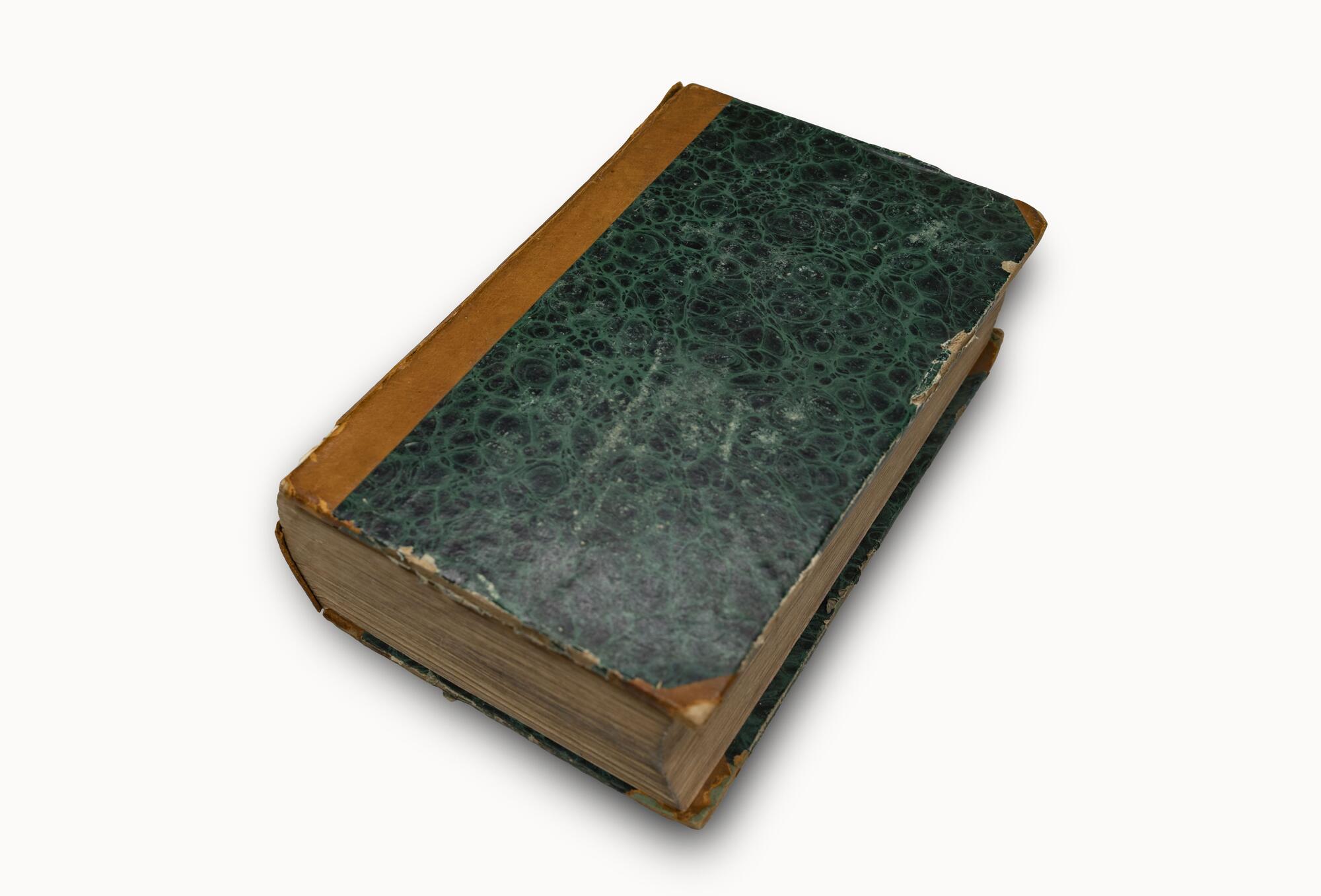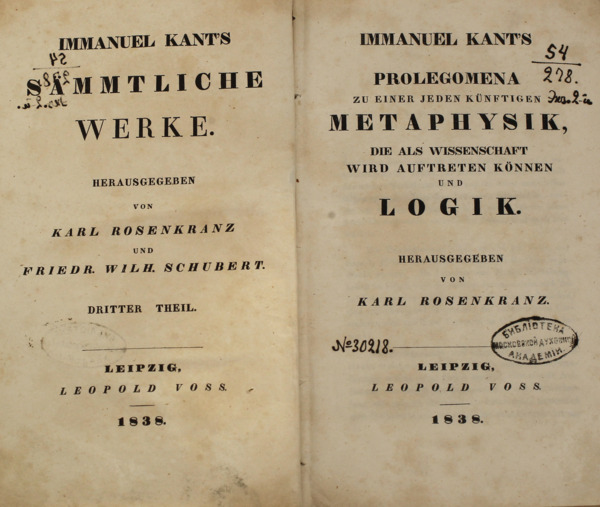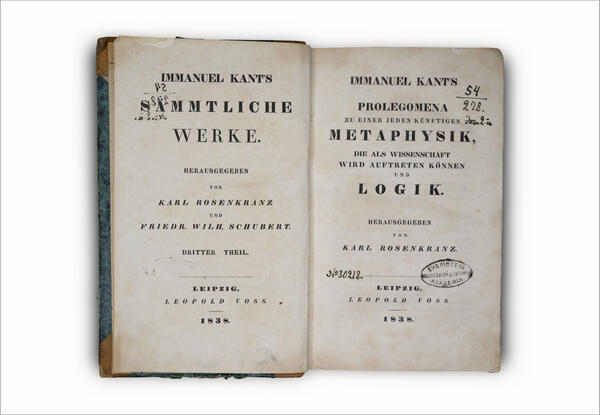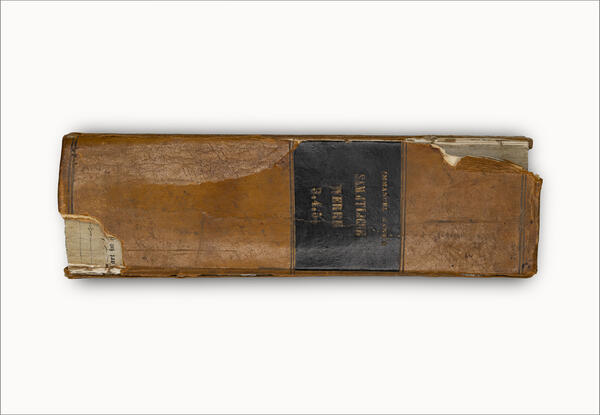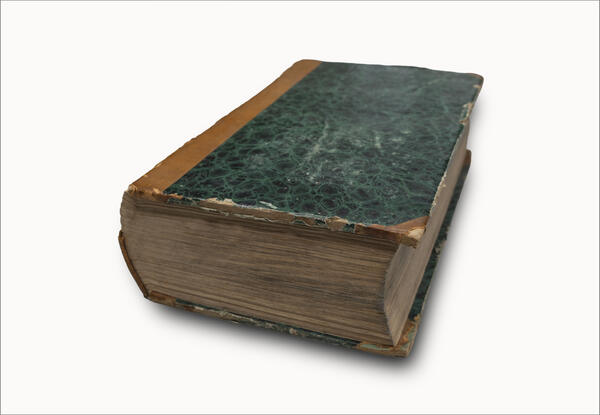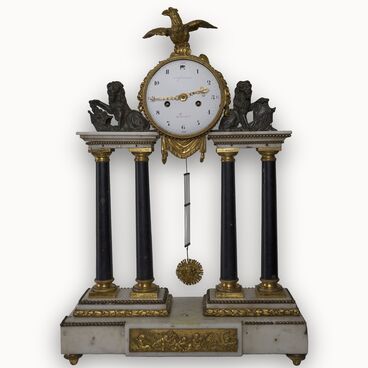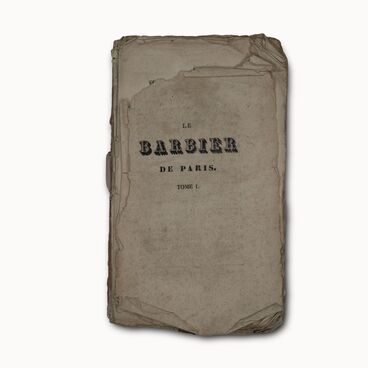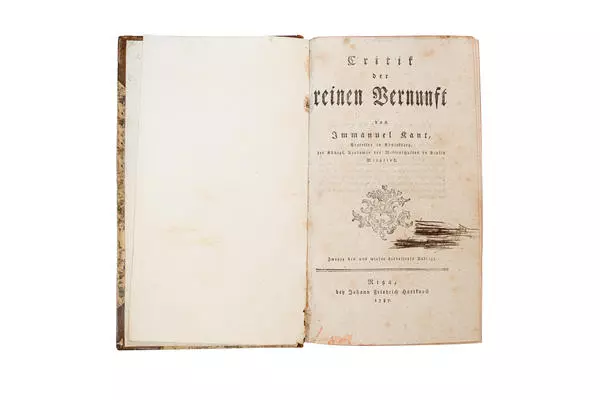The book on display is a volume of the collected works of Immanuel Kant, published from 1838 to 1842 under the editorship of Karl Rosenkrantz, a German philosopher and follower of Hegel.
Alexander Fyodorovich von der Brüggen mentioned in one of his letters how important the Kantian ethics was in the life of Russian officers of the 19th century. Kant studied the concept of freedom. He wrote, “There can be nothing more dreadful than that the actions of one man should be subject to the will of another.”
Alexander Brüggen served as a lieutenant in the Life Guards of the Izmailovsky Regiment. He participated in the Patriotic War of 1812 and was a member of the Northern Society of the Decembrists. After the revolt of the Decembrists, Alexander Brüggen was found guilty of “having knowledge of and an intent to commit regicide” and sent to the Chita prison to serve his sentence. He was exiled to Turinsk from Kurgan in 1850. After working five years in the Turinsk District Court, he received permission to return to Kurgan. Turinsk at different times was a place of residence for many Decembrists, such as Vasily Ivashev, Ivan Pushchin, Evgeny Obolensky, Nikolai Basargin, Stepan Semyonov, and Ivan Annenkov.
Immanuel Kant was a German philosopher and the founder of German classical philosophy. In 1755, he defended his doctoral thesis and received a doctorate, which would mark the beginning of his 40 years of teaching career.
In 1770, the critical period in Kant’s work started. That year, at the age of 46, he became a professor of logic and metaphysics at the University of Königsberg, where he would teach an extensive cycle of disciplines — philosophy, mathematics, physics — until 1797. During this period, Kant wrote fundamental philosophical works, which earned him the reputation as one of the outstanding thinkers of the 18th century and had a huge impact on the further development of international philosophical thought.
The book was purchased for the Turinsk Decembrists House Museum in 1993 to become part of a collection of rare books that was formed to create a library display in the office of the Decembrist Vasily Petrovich Ivashev.
Alexander Fyodorovich von der Brüggen mentioned in one of his letters how important the Kantian ethics was in the life of Russian officers of the 19th century. Kant studied the concept of freedom. He wrote, “There can be nothing more dreadful than that the actions of one man should be subject to the will of another.”
Alexander Brüggen served as a lieutenant in the Life Guards of the Izmailovsky Regiment. He participated in the Patriotic War of 1812 and was a member of the Northern Society of the Decembrists. After the revolt of the Decembrists, Alexander Brüggen was found guilty of “having knowledge of and an intent to commit regicide” and sent to the Chita prison to serve his sentence. He was exiled to Turinsk from Kurgan in 1850. After working five years in the Turinsk District Court, he received permission to return to Kurgan. Turinsk at different times was a place of residence for many Decembrists, such as Vasily Ivashev, Ivan Pushchin, Evgeny Obolensky, Nikolai Basargin, Stepan Semyonov, and Ivan Annenkov.
Immanuel Kant was a German philosopher and the founder of German classical philosophy. In 1755, he defended his doctoral thesis and received a doctorate, which would mark the beginning of his 40 years of teaching career.
In 1770, the critical period in Kant’s work started. That year, at the age of 46, he became a professor of logic and metaphysics at the University of Königsberg, where he would teach an extensive cycle of disciplines — philosophy, mathematics, physics — until 1797. During this period, Kant wrote fundamental philosophical works, which earned him the reputation as one of the outstanding thinkers of the 18th century and had a huge impact on the further development of international philosophical thought.
The book was purchased for the Turinsk Decembrists House Museum in 1993 to become part of a collection of rare books that was formed to create a library display in the office of the Decembrist Vasily Petrovich Ivashev.
